For Edmonds businesses, the struggle remains real
Pandemic and conflict over ‘streateries,’ walkable Main Street make future uncertain
Raj Banga, co-owner of Revelations Yogurt in Downtown Edmonds, knows that this time of year is lean, but with good sales in the warmer months, she has always managed to stay in the black. What’s been different both this year and last is that there’s no living off of the sales from the previous summer.
According to Banga, the reason is simple: “We’re not making a profit right now.”
Struggles like those of Banga’s business are not unique. For small business owners everywhere in the Edmonds Bowl, the last two years of the COVID-19 pandemic have been fraught with difficulty, uncertainty and conflict. Employees, customers and supporting organizations are affected by the continued struggles of the pandemic, too, where the “normal” we all long for seems out of reach and emotions can run high.
Besides the practical, day-to-day issues of running a business, some people keenly feel the tension of pandemic politics and the way they affect local commerce. Some feel supported; others feel betrayed. Disagreements surrounding both “streateries” and a walkable Main Street abound. Nearly all have opinions – whether that’s regarding health and safety or professional equity – and naturally not everyone agrees.
Such is the life of the small business owner during a pandemic.
For Banga and longtime Revelations manager Laura Riddle, the year 2020 marked a time of exceptional strain at this small, self-serve yogurt place, when the pandemic put the shop’s hallmark self-service on hold. Instead, they found themselves with a small crew of taxed staff running back and forth to take orders, fill cups with yogurt and toppings, and run the cashier.
“It was a change,” Banga says. “It was hard. Everything was new…the harder time was for the customers,” referring to the frustration of patrons used to the charm of exactly controlling their servings. Fortunately, this challenge – which Banga and Riddle call the greatest difficulty that the business faced during the pandemic – is no longer an issue, as they are back to self-serve with other precautions in place.
But that doesn’t mean their troubles are over. Severely stunted revenue has required supplementation from city and state grants in order for the shop to survive, says Banga. Employment has been a significant issue the last two years, with higher-than-normal employee turnover in what Riddle refers to as an already “transient” job. Finding the funds to hire employees is one challenge; finding folks both motivated to work and willing to interface with customers is a whole other issue, they say. And this isn’t unique to frozen yogurt shops.
Win Pat, a server at Thai Cottage, notes that staffing and scheduling are challenges at his workplace as well. He also emphasizes how payroll has become one of the greatest hardships; and naturally that major challenge affects all others when running a business. Throw an upheaval of the previously predictable flow of business into the mix, and you have a nice recipe for stress and uncertainty.
This unpredictability is a major problem for Chris Mayes at the Edmonds Theater. As manager of the single-screen movie venue, he’s deeply entrenched in the day-to-day battle of keeping it open and operating, speaking to three main uncertainties in the business: whether employees will stay healthy, whether there will be movies to show, and whether audiences will even come to see movies if they are produced.
“The biggest issue has been…people feeling OK to come back out,” Mayes says. He also says that, while the theater is operating at 50% capacity, he typically only has audiences of about half that number: perhaps a few dozen people per show. This is quite a strain on a theater whose main profits come from the concession stand.
Decrease in profits was also a significant issue for the family-owned, Edmonds location of Toshi’s Teriyaki early in the pandemic, which has pivoted to take-out only. While manager Lydia Jeong says that revenue has improved over time, she cites another common issue businesses have faced: conflict over face coverings. Jeong says that they dealt with some people refusing to wear masks, but the restaurant was able to mitigate this situation by providing them at their establishment.
It would be a pretty bleak story if it ended there, but fortunately it doesn’t. While businesses continually face unprecedented challenges, several mention the positives that have emerged from manifold struggles. Jenny Murphy, owner of the clothing store Sound Styles, mentions the benefits of pivoting over the past two years.
“I have learned A LOT,” she says. “The importance of exceptional customer service, the importance of being able to adapt, I know myself better and I have learned that my store can produce the same sales with lower inventory levels all while being open fewer days a week.”
One important quality of Edmonds is the sense of community. Banga, Riddle, Mayes, and Murphy all note feeling supported by local and loyal customers. Furthermore, the Edmonds Chamber of Commerce works to be a valuable resource in the community.
The Chamber is an independent organization whose overall goal is to “[promote] the economic vitality of Edmonds.” One of the ways it does this, says President and CEO Greg Urban, is by striving to be a “single source resource for the community and businesses” – a sort of pool of information by connecting relevant businesses to one another.
This function was helpful for many in the early days of the pandemic. Urban, who ran the organization solo for most of 2020, prioritized regular meetings between businesses in order to foster communication as much as possible, including by sharing information regarding grants and loans. He also coordinated a business to businesses project, where Edmonds businesses helped other Edmonds businesses with projects that were paid for from the Chamber’s nonprofit foundation and the City of Edmonds.
Urban says the objective was to support businesses by contributing “anything and everything we could do,” including by spreading positive messages around town with posters.
In the midst of the Chamber’s own adaptations, Urban notes that there are two poles of management attitudes that can have a significant effect on businesses during the upheaval of the pandemic.
“I’ve seen both,” he says. “I’ve seen the ones that kind of shut down and pull the hood over their head and have kind of the more ‘Woe is me’ attitude. And then those that are continually throwing stuff against the wall seeing what sticks and adjusting, you know, constantly.”
Urban also notes that he is “ever-impressed by the innovative nature of small business owners.”
There are plenty of examples of this latter attitude in Edmonds. Mayes has created to-go popcorn sales and emphasized private theater rentals as a way to stay afloat. Eating establishments, including Revelations, Thai Cottage and Toshi’s Teriyaki have added online ordering and/or prioritized take-out.
Pat says that the new 15-minute parking spots for take-out pick-up have been helpful; this is especially impactful since parking in Edmonds is a scarce and precious commodity. Even more so, in fact, since one of the most visible and controversial adaptations has been established in the city: the “streateries.”
Streateries in Edmonds are small outdoor shelters that are put up by restaurant owners to serve as extensions of the restaurants. They are typically situated in one to two parking spaces in front of restaurants, and were permitted by the city early in the pandemic to help mitigate the effects of decreased indoor capacity and airflow concerns. And while they were universally acknowledged as an appropriate option early on, they have since become a divisive topic in the community.
Politics concerning both this issue and “Walkable Main Street” (where Main Street is blocked off between 3rd and 6th Avenues for foot traffic only), which was instituted by the city government on summer weekends the last two years, are what Murphy refers to as the hardest challenge she has faced during the pandemic.
“Some businesses were favored over others,” Murphy says, referring to how the government has prioritized, by some accounts, the restaurants in the Main Street area (which some local business owners reportedly call “the zone”) by organizing Walkable Main Street and allowing restaurants to use parking spaces for streateries at no charge. She says she has an issue with these “shacks” now, not in 2020 when they were absolutely necessary.
While the Edmonds City Council decided in 2020 that the streateries would be removed by the end of 2021, in December of last year the Council extended the permit until April 2022 – if restaurants can pay $2,000 (in the form of monthly $500 installments) as a sort of rent for the parking spaces. Several restaurants removed their streateries before the fee went into effect. But Murphy says that even the ones that remain should be removed.
“I’ve watched what’s happened down here and I listen to the heartache of what people feel…heartfelt concerns from the locals,” says Murphy, speaking of those who see the streateries as obscuring the charm and accessibility of the Downtown area.
“There’s a lot of outdoor seating, still, without the streateries,” says Murphy. And now that restaurants are back to full capacity – and since streateries often sit unused – she says that other stores’ customers need the parking: “so if you’re not going to use your streatery, close it down.”
Mayes also acknowledges that the streateries take up a significant amount of parking in the downtown area, although he emphasizes that it’s “a difficult situation.”
“I don’t see it as an ‘us versus them’ – you know, [like] they’re taking something away from us,” he says, in addition to expressing his opinion that “some sort of reasonable [fee]” is an appropriate measure. He also notes that the streateries are only compounding a larger – and older – problem.
“Even if the streateries were all gone tomorrow, I think the Edmonds Theater would still need better long-term parking,” Mayes says.
Regarding Walkable Main Street, Murphy says that Main Street is already walkable enough with its wide sidewalks, and that the only businesses that benefit from it are restaurants within “the zone.” This would mean that both non-food businesses and restaurants outside of the Walkable Main Street area, such as the ones near the ferry terminal, are left out in the cold because of the government’s favoritism.
While Murphy has said that her business (which is within “the zone”) is negatively affected by Walkable Main Street, it’s primarily community concern that drives her involvement in the streatery and Main Street issues. In addition to frustration over what she feels is government favoritism to a few, she is also unhappy with the environment Walkable Main Street creates. She says it produces an atmosphere that is “kind of like a carnival affair,” which drives some of her customers away.
Revelations and Toshi’s Teriyaki, which both fall within the Walkable Main Street area, mention how beneficial it is to their businesses, with Banga saying that it “helped a lot.”
Jeong also noted, “[Walkable Main Street] really helps small businesses in Down[town] Edmonds – people would walk down the main street and come into small restaurants to grab something to eat and having outdoor seating also is helpful to maintain the business.
It remains to be seen whether all streateries will be permanently removed when the current permit is up in April, as well as if Walkable Main Street will occur again this summer.
All told, perhaps Riddle said it best: “It’s a difficult, difficult time to own a business.” Financial and employment crises, uncertainty, and conflict are just a few of the manifold challenges faced by the small business owners of the Edmonds Bowl in the unprecedented time of the COVID-19 pandemic. But in their own distinct way each business is doing what Murphy emphasizes as of utmost importance: persevering and “staying the course.”


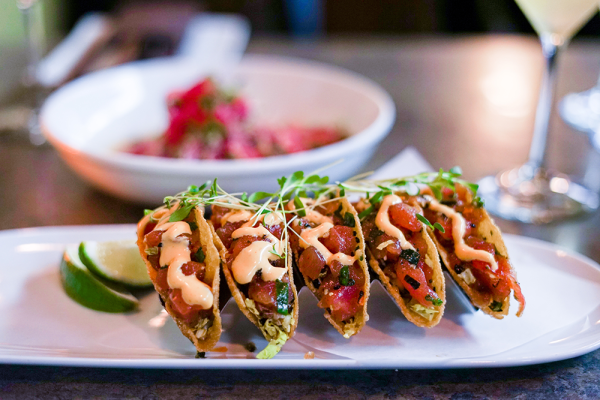
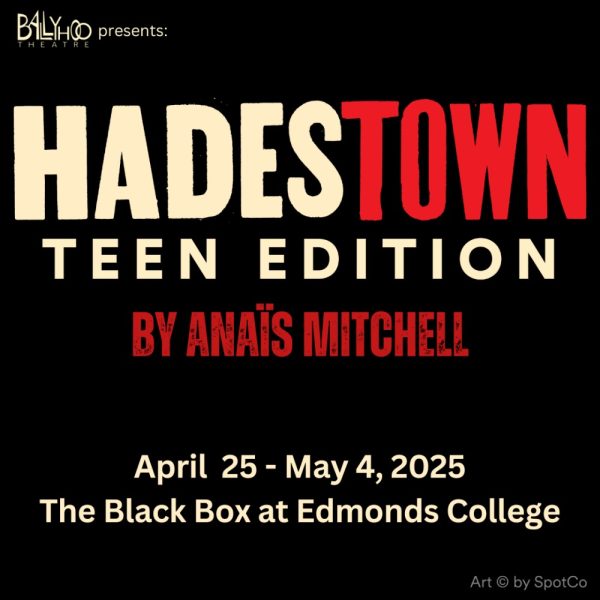


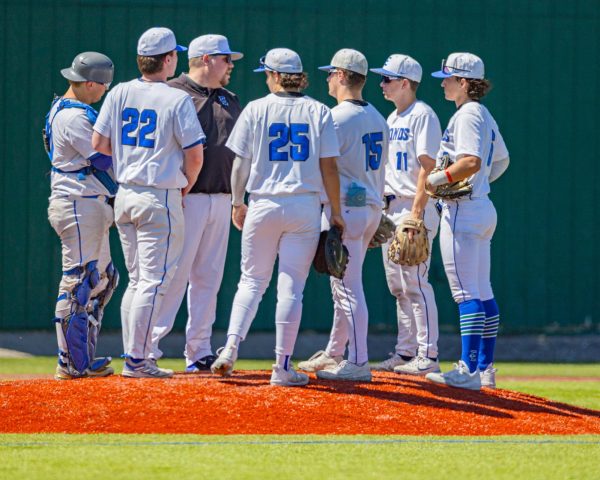
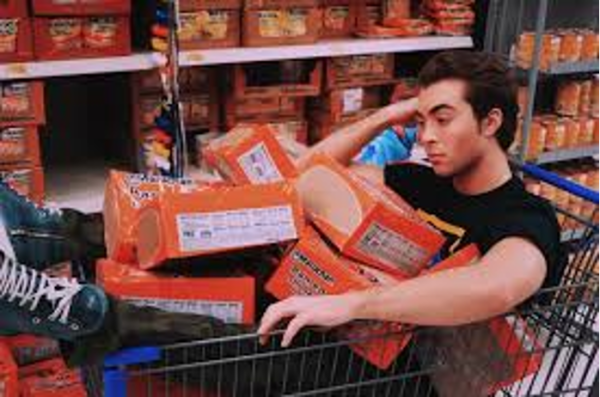
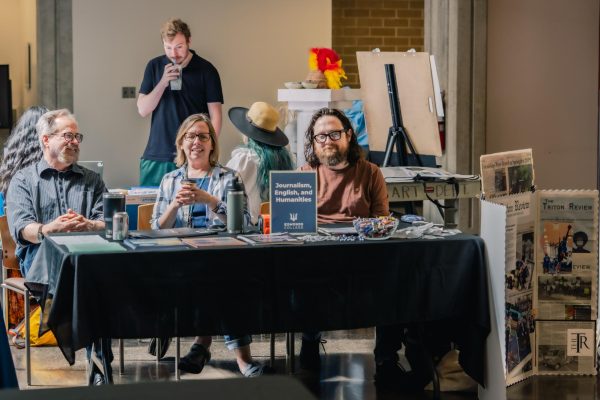
The Seattle Collegian • Jun 1, 2022 at 1:00 pm
Well-written and informative article about an appreciated Edmonds business, nice work Ms. Roodhouse.
For more student journalism, check out Seattle Central College’s paper:
https://seattlecollegian.com/